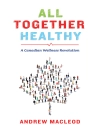This book presents a comprehensive overview of Asian families residing in Canada and the United States by portraying and analyzing Asian Canadian and Asian American immigrant families in an integrated yet nuanced way. Chapters use an interdisciplinary approach to provide more comprehensive coverage of the vast diversity as well as common trends and shared characteristics of Asian families. Specifically, the volume examines the experiences of families whose ancestry can be traced to East Asia, Southeast Asia, South Asia, and West Asia.
Key areas of coverage include:
- Integrated overview of Asian American and Asian Canadian families, including an exploration of the historical and current immigration policies.
- Experiences of families of East Asian, Southeast Asian, South Asian, and West Asian ancestry across Canada and the United States.
- Asian religious traditions and worldviews, traditional practices, and religio-cultural views on gender, sexuality, and family.
- Specific Asian immigrant groups on immigration demographics, family dynamics and relationships, gendered roles, parenting practices and beliefs, and implications for mental health.
- Challenges and issues that families face as Asians and immigrants, the strength and resilience of families, with extensive reviews on various intervention and prevention programs.
- Methodological strategies in investigating Asian families and their impact on the field.
Asian Families in Canada and the United States is a must-have resource for researchers, professors, graduate students as well as clinicians, professionals, and policymakers in the fields of developmental, social, and cross-cultural psychology, parenting and family studies, social work, and all interrelated disciplines.
表中的内容
1. The Complexities of Asian Families from Around the World: Creating New Lives in Canada and the United States.- Part A: History, Religion, and Culture.- 2. Comparing and Contrasting Asian Families in Canada and the United States.- 3. Asian Families: Religion, Spirituality, and Worldviews.- Part B: Specific Countries and Regions of Origin.- East Asia.- 4. Chinese Families from Mainland China, Hong Kong, and Taiwan.- 5. Growing up in Two Worlds: Young Chinese Americans in New York City.- 6. Japanese Families.- 7. Korean Families.- South Asia.- 8. Bangladeshi Families.- 9. Indian Families.- 10. Pakistani Families.- West Asia.- 11. Arab Families from the Levant.- Part C: Counseling and Therapy for Mental Health and Wellbeing.- 12. Asian-Origin Families in Canada and the United States: Challenges and Resilience.- 13. Providing Therapy with Asian Immigrant Families: A Review of Prominent Issues and Treatment Considerations.- Part D: Methodology Considerations.- 14. Critically Assessingthe Methodological Challenges of Exploring Chinese.
关于作者
Susan S. Chuang, Ph.D. (University of Rochester), is an Associate Professor at the University of Guelph, Canada. Her research focuses on fathering, parenting, parent-child relationships of young children among immigrant and ethnic families in various sociocultural contexts (Asian: Canada, China, Hong Kong, Taiwan; Latino/a: Paraguay, US; Black: Jamaica). Her second line of research examines families and immigration, collaborating with various national organizations in Canada. She conducts numerous volunteer workshops for the local communities that focus on various topics (e.g., parenting, education, child/youth development, employment). She has organized six international conferences on immigrant families.
Roy Moodley, Ph.D. (University of Sheffield), is an Associate Professor in clinical and counseling psychology at the University of Toronto, Canada. Dr. Moodley is also the Director of the Centre for Diversity in Counselling and Psychotherapy. His research interests include critical multicultural counseling and psychotherapy, race and culture in psychoanalysis, global south psychologies; traditional healing and mix-race relations.
Uwe P. Gielen, Ph.D. (Harvard University), is the Founder and Executive Director of the Institute for International and Cross-Cultural Psychology at St. Francis College, New York City, USA. His work focuses on cross-cultural and international psychology, Chinese American immigrant adolescents and young adults, international family psychology, and moral development. His more than 190 publications include 30 edited, co-edited, and co-authored volumes and nine special journal issues. He has lectured in 34 countries and has served as president of the Society for Cross-Cultural Research, the International Council of Psychologists, and the International Psychology Division (52) of the American Psychological Association.
Saadia Akram, Ed.D. (University of Toronto), is a registered psychologist with the Ontario College of Psychologists and operates her private practice in the Greater Toronto Areas (GTA), Canada, and also works within the non-profit, community based sector. She has more than 25 years of experience delivering individual/group psychological services and professional development trainings to a wide variety of diverse and multicultural populations.












